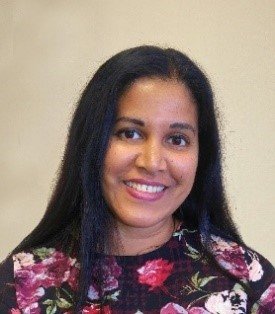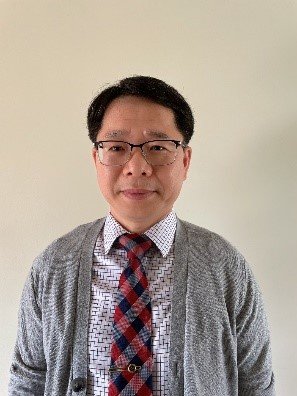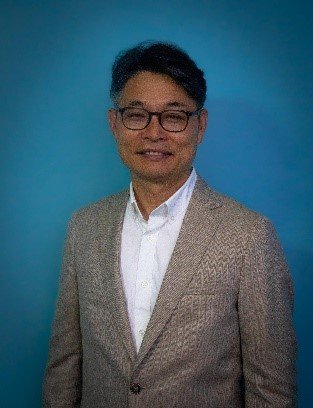May 19, 2022
Greetings,
As we celebrate Asian American and Pacific Islander Heritage Month this month, the New York State Office of Mental Health (OMH) wants to recognize and acknowledge the Asian American and Pacific Islanders working across the mental health system, who remain committed to promoting the mental wellness and recovery of the individuals being served. OMH recognizes the current and historic disparities that exist for these communities and remains committed to ensuring that supports and services are put in place to promote equity and inclusivity for all.
The Agency recognizes the increase in discrimination and injustices targeted towards these communities both historically and currently. OMH continues to implement activities and supports aimed at addressing the mental health impact that experiencing these situations have on individuals. In alignment with these efforts, the Agency has convened an Asian American Mental Health Workgroup tasked with developing and implementing concrete strategies and initiatives aimed at addressing current and historic disparities and fostering support for these communities. With participation and support from NYC Council members, NYC government leaders, OMH leadership and other amazing providers and stakeholders, this workgroup meets regularly to identify policy, system, and program-level recommendations to be implemented across the system.
Additionally, OMH remains focused on increasing information sharing in an effort to further inform providers, advocates and stakeholders about unique challenges faced by minority communities. In alignment with these efforts, OMH has worked to create numerous tip-sheets and resources focused on bringing awareness and attention to supports and services available for special populations. We invite you to explore the resource attached, Spotlight on Asian Americans which brings awareness to the unique challenges faced by this community as well as available resources and supports.
Although strides have been made to address the longstanding inequities existing in the behavioral health system for Asian Americans and Pacific Islanders, as well as all people of color, the work is far from being done. OMH will continue to progressively work to break down barriers to care, increase information sharing about prevalent challenges and issues impacting communities of color and implement system wide policy changes that promote the reduction of disparities.
This Asian American and Pacific Islander Heritage Month, OMH would like to highlight some of the many individuals who demonstrate an unwavering commitment and dedication to upholding OMH’s mission to promote the mental wellness of New Yorkers. These individuals demonstrate the importance of holding the system accountable for making progressive change.
Dhanushki Samaranayake, PhD
Dr. Samaranayake joined OMH in 2019 and serves as the Director for Program, Policy, and Thought Leadership at the Institute for Program and Policy Innovation (IPPI). Dr. Samaranayake develops short and long-range plans and goals for IPPI and participates in all administrative and research efforts.
Dr. Samaranayake earned her Doctorate in Philosophy from the State University of New York at Albany and majored in Biomedical Sciences. Prior to her role at OMH, Dr. Samaranayake held positions at the New York State Department of Health (NYSDOH) where she conducted high-visibility projects such as the LGBTQ Health Education Survey, enhancing hiring practices that support diversity and inclusion, Multipliers Leadership trainings for staff, and fighting the stigma associated with HIV.
Once a foreign national, Dr. Samaranayake is dedicated to the diversity, equity, and inclusion efforts at OMH and is committed to looking at data through an equity lens. Her specific contributions include supporting a comprehensive statewide plan for stigma reduction in mental health, collecting mental health consumer data to apply in data-driven approaches to improving mental health services, and drafting manuscripts highlighting mental health needs of all New Yorkers. Dr. Samaranayake also serves as an Adjunct Professor at The Russell Sage College, Troy NY. She understands the importance of fostering an inclusive classroom environment for her students and sees this as an opportunity for student success.
To Dr. Samaranayake, the Asian American and Pacific Islander Heritage Month is a celebration of all the historical and cultural contributions the Asian Americans and Pacific Islanders have offered through the years. Dr. Samaranayake believes that there is so much that each of us can offer our communities, both professionally and personally. She enjoys every effort of serving her community and her student cohorts. Moreover, she relishes every moment as a contributing partner to her loving husband of 15 years and as an engaging mother to her two energetic daughters.
“Happiness is when what you think, what you say, and what you do are in harmony – Mahatma Gandhi”
Jeongbae Kim
Jeongbae joined OMH as a Mental Health Program Specialist in 2017. Jeongbae currently works in OMH’s Planning Office and finds the work environment to be caring and supportive. In his role, Jeongbae evaluates and manages OMH reinvestment-funded programs/services as well as develops and analyzes various databases. Jeongbae also collaborates with OMH field offices and other central offices while providing necessary support and technical assistance. Prior to OMH, Jeongbae worked for community-based and non-profit agencies for over 15 years, which helped him build a strong career in mental health. Jeongbae developed effective and efficient strategies/tools/framework, “Evidence-Based Rehabilitation Outcomes (EBRO) and Client Task-Centered Rehabilitation,” for multicultural and diverse mental health populations with various needs. Jeongbae hold a master’s degree in Social Welfare from University at Albany. He is a father of two lovely daughters and a husband to his lovely wife. Jeongbae enjoys singing, playing guitar and playing tennis with his family and community.
Jeongbae believes that we all are very valuable and unique individuals who equally have a right to live a meaningful life. He believes that all individuals regardless of who they are, should be able to choose and keep their life meaningful as productive American Citizens. Jeongbae is proud to continue to be a part of the journey of individuals’ recoveries.
Gina Bae
Gina joined OMH in 2011 as the Mental Health Program Specialist 2 in the NYC Field Office Licensing Unit. In this role, Gina helped provider agencies establish mental health services in diverse communities in NYC and achieve the highest level of quality and compliance via routine inspection and monitoring activities. Her experience and zest for licensing work led to several promotions, and Gina now oversees the statewide licensing bureau in the OMH Central Office. Growing up in Queens since immigrating to America at age 12 with her parents and older brother, Gina enjoyed the abundant Korean and other Asian food and culture the diversity capital offered. Before relocating to Albany, Gina especially liked supporting providers serving the Queens community, and celebrated the opening of each newly licensed mental health program at a personal level. Prior to joining OMH, Gina worked for a non-for-profit organization providing assertive community treatment to individuals with serious mental illness in the South Bronx neighborhoods. Gina holds a Master’s degree in Forensic Psychology from CUNY John Jay College of Criminal Justice and is a Lean Six Sigma Green Belt, SUNY University at Buffalo. In her spare time, Gina loves cycling and hopes to explore all 750 miles of the Empire State Trail one day.
Li-Wen Lee, MD
Dr. Lee is a forensic psychiatrist who joined OMH in 2008 as the Medical Director for the Division of Forensic Services (DFS), and, since 2019, has served as Associate Commissioner for DFS. DFS coordinates mental health services to individuals involved with New York State’s criminal justice system, including restoration to fitness to stand trial, management of insanity acquittees, treatment of sexual offenders under Mental Hygiene Law Article 10, and correctional mental health treatment. These services are delivered through secure forensic facilities and programs located within state correctional facilities. Additionally DFS staff provide law enforcement training, as well as community-based training and technical assistance to support community-based services to forensic populations and diversion of individuals with mental illness from the criminal justice system
Dr. Lee began her psychiatric career providing acute inpatient treatment to individuals in NYPD and Rikers custody. She views forensic mental health services as a critical component of the public mental health system for a traditionally underserved and highly stigmatized population. She additionally serves as assistant clinical professor at Columbia University and participates in the education of forensic psychiatry fellows.
To Dr. Lee, AAPI Heritage Month is a celebration of the Asian American/Pacific Islander contribution to the rich tapestry of the American fabric, woven by people representing all walks of life, as colleagues, neighbors, and friends. Dr. Lee is proud to be part of an organization consciously working to eliminate disparities in mental health services and to sustain a diverse workforce, inclusive of all communities.
Haein Son, LCSW-R/CASAC-Master
Haein started his social work career at Creedmoor Psychiatric Center in 2000. He helped Korean-speaking patients transition from inpatient to community living and connect with community resources to prevent further hospitalization. He observed their enormous challenges in receiving culturally competent mental health services due to language and cultural barriers. He realized they were often sent to the emergency department or involved in the criminal justice system due to unrecognized mental health conditions and delayed treatment. Haein wanted to change this cultural stigma and lack of access to mental health services among Korean Americans. He started a small discussion group with colleagues and founded the Korean American Behavioral Health Association (KABHA) in 2001. He believed that a group of voices could be more powerful and convincing to the community than an individual’s commitment. Recently, discrimination, anti-hate crime, and mental health disparities in the Asian American community became one of the urgent issues during the pandemic. However, there was no comprehensive guide to help mental health practitioners understand the most culturally competent and effective approaches when working with Korean Americans. To help mental health practitioners better understand Korean American mental health issues, Haein participated in editing a book with two other editors titled ‘Understanding Korean Americans’ Mental Health: A guide to culturally competent services, programs, and policy development.’ He currently works as a Mental Hygiene Program Evaluation Specialist 4 at New York City Children’s Center and holds two master’s degrees in Social Work from University at Albany and Soongsil University in Korea. Haein received an Emerging Social Work Leader Award from the National Association of Social





